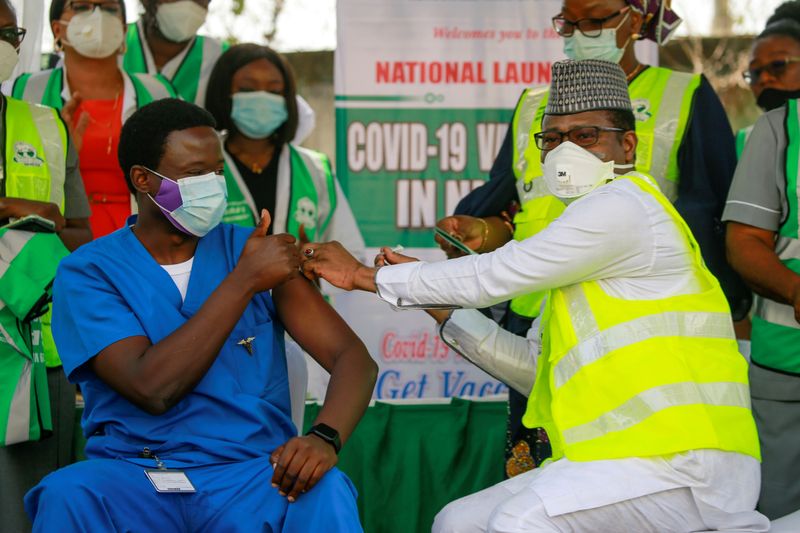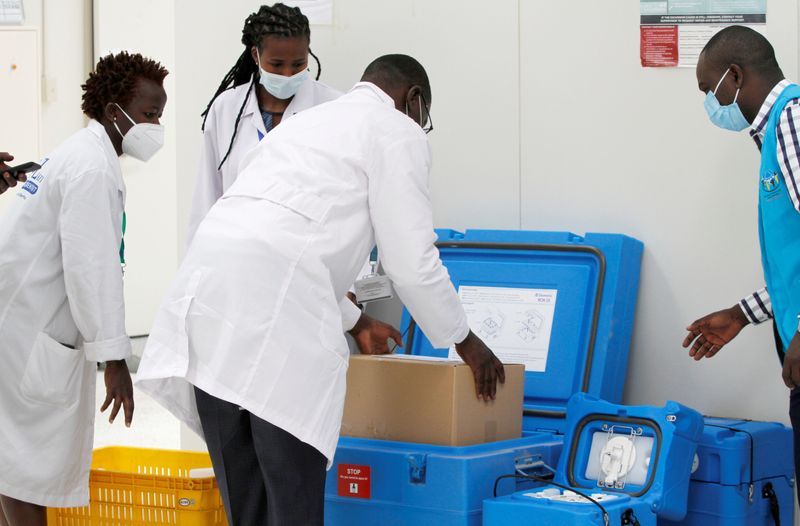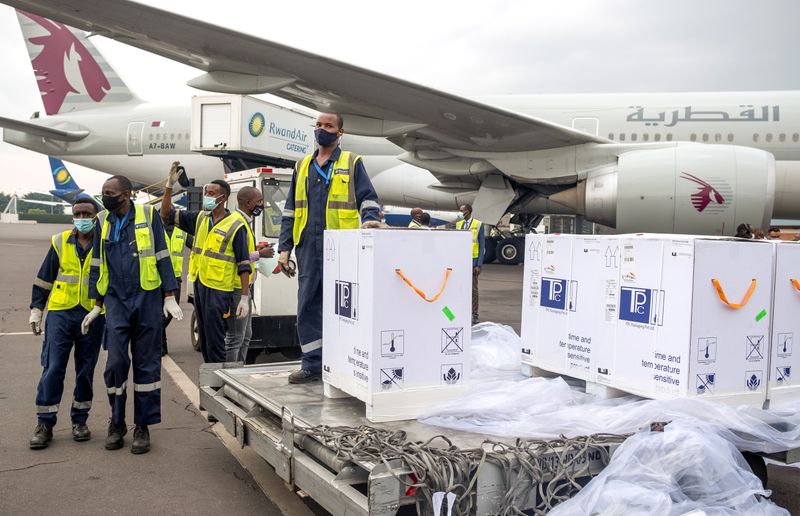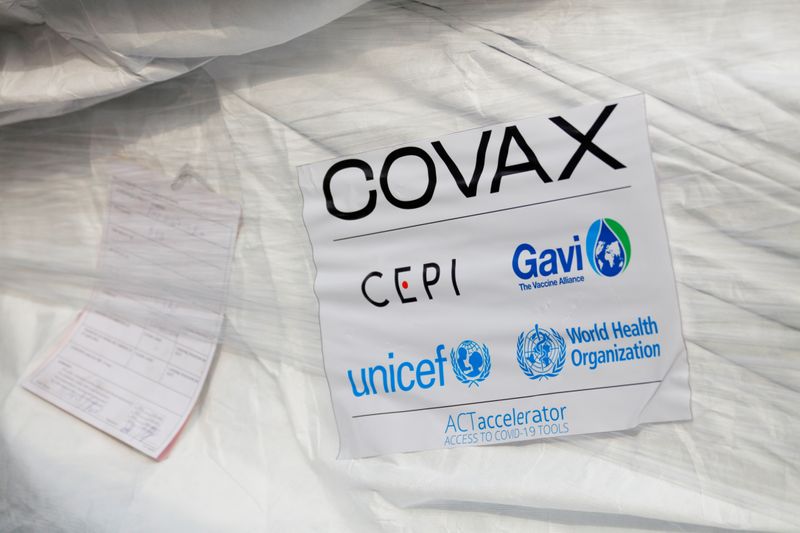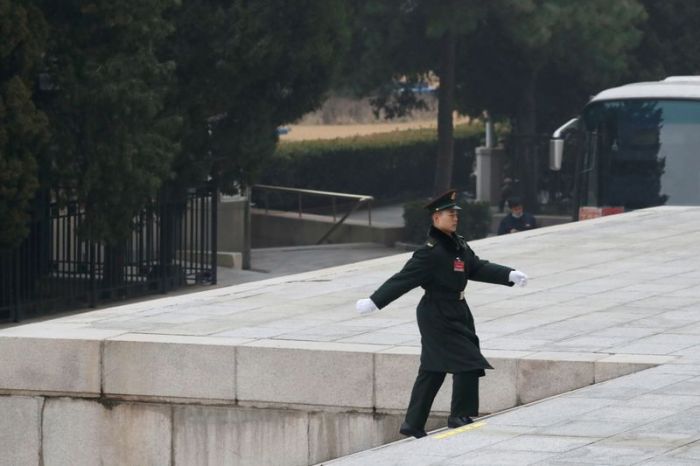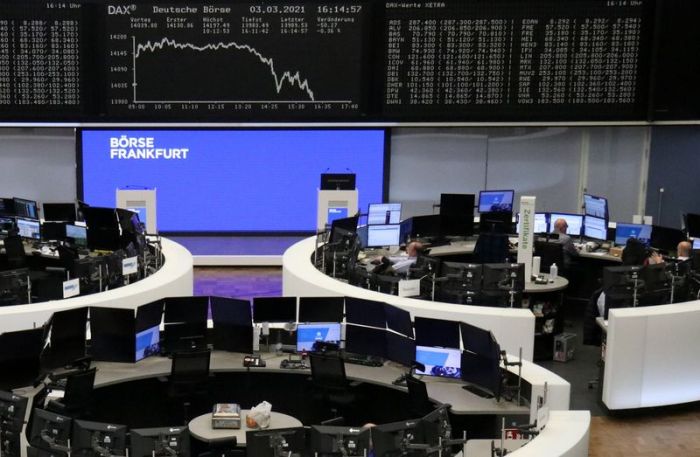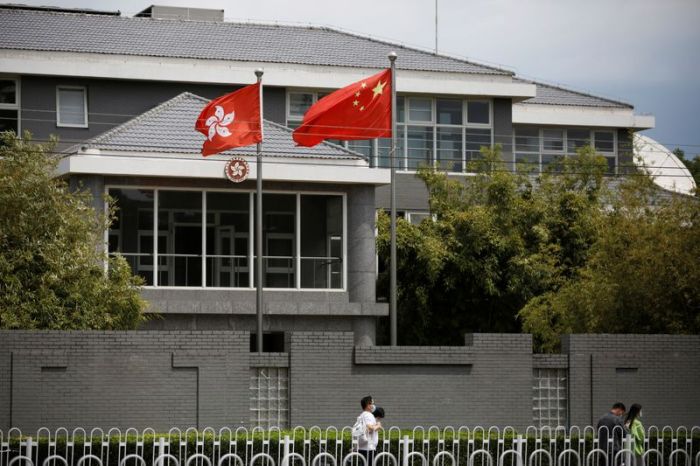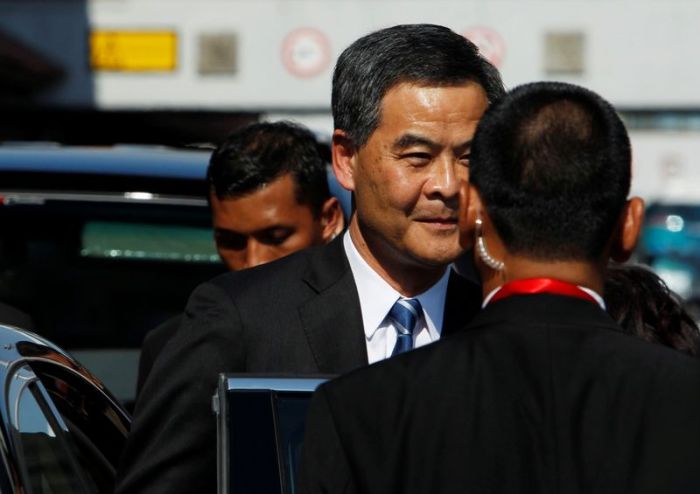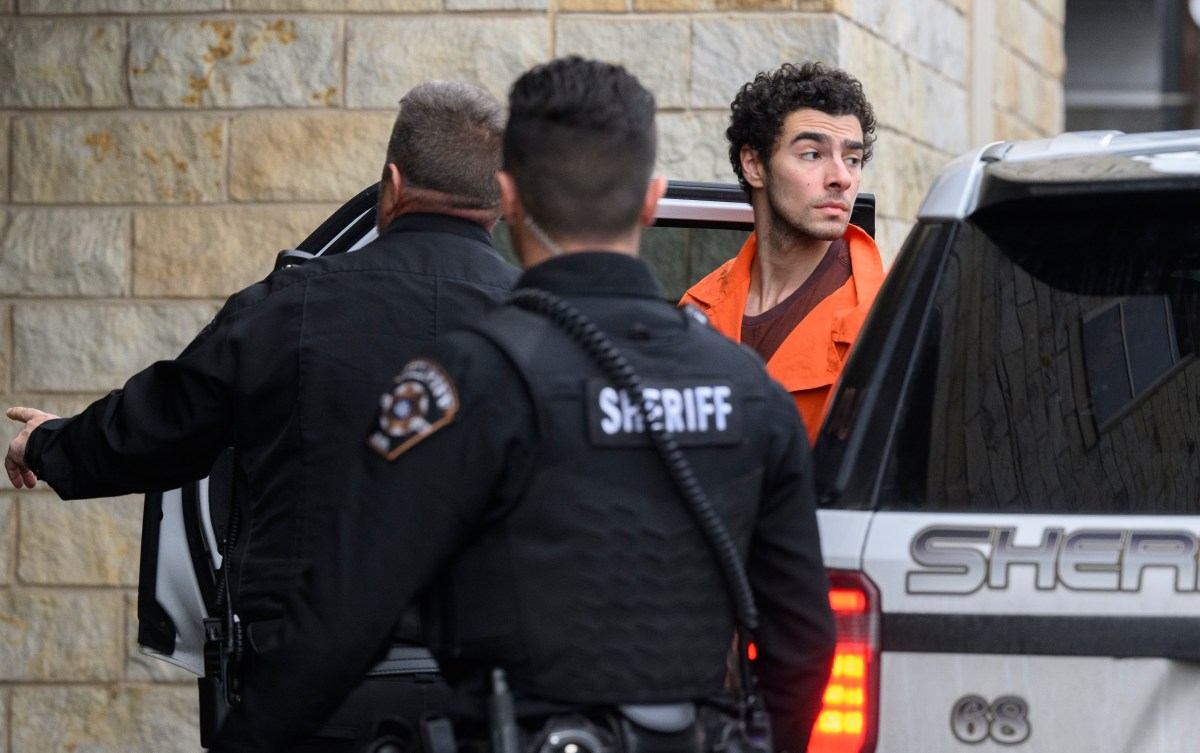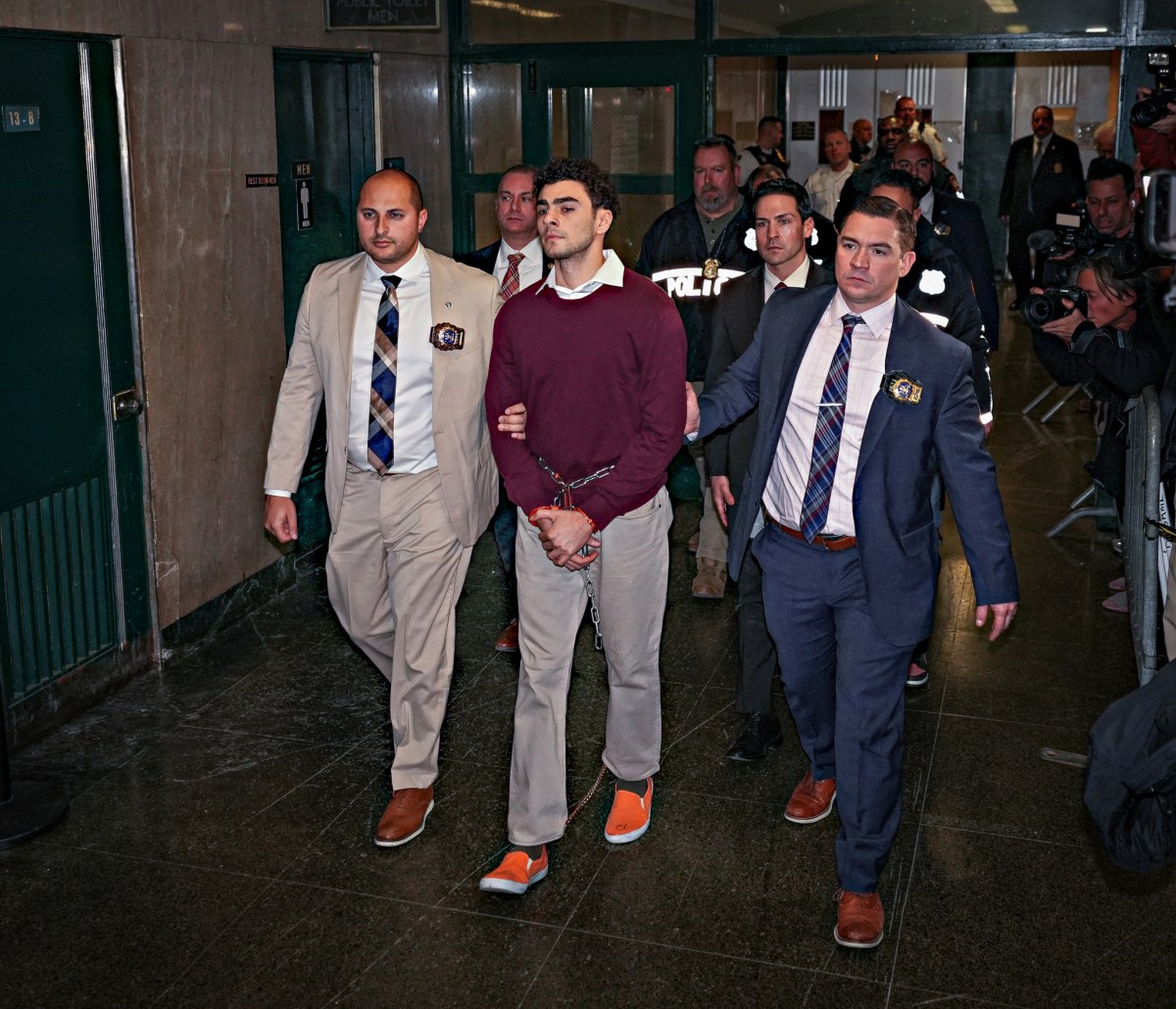ABUJA/NAIROBI (Reuters) – Nigeria, Kenya and Rwanda started inoculating frontline healthcare workers and vulnerable citizens against COVID-19 on Friday as Africa, the world’s poorest continent and home to 1.3 billion people, stepped up its vaccination campaigns.
While some wealthy Western nations have already inoculated millions of people, many African states have struggled to secure doses and have yet to administer a single shot.
But the global vaccine-sharing COVAX facility, co-led by the World Health Organization (WHO), the GAVI vaccine alliance and others, has begun to bear fruit in nations from Ghana to Rwanda.
“This means that I will die when God wants because the coronavirus cannot kill me now,” 90-year-old Stephanie Nyirankuriza said, leaning on a walking stick after her shot at a health centre just east of the Rwandan capital Kigali.
Rwanda is the first nation in Africa to use pharmaceutical company Pfizer’s doses that require ultra-cold storage.
President Paul Kagame’s government, which prides itself on technological prowess but is often criticised as authoritarian, has installed special infrastructure to keep the Pfizer vaccine at the required -70C.
The Kagame government, which has received both Pfizer and AstraZeneca shots via the COVAX facility, plans to vaccinate up to 30% of Rwanda’s 12 million people by the end of the year.
Nigeria, Africa’s most populous country and its biggest economy, inoculated healthcare workers with AstraZeneca shots on Friday, the start of a campaign that aims to vaccinate 80 million of the 200 million-strong population this year.
“I want everybody to be vaccinated,” Ngong Cyprian, a 42-year-old doctor, told Reuters in the capital Abuja as he became the first in Nigeria to receive his shot, while officials clapped and cheered.
President Muhammadu Buhari will be vaccinated on Saturday in an effort to increase public confidence in the shots.
Nigeria took delivery of 3.92 million AstraZeneca doses on Tuesday under COVAX, but the facility only aims to cover 20% of the population in the countries it helps. Nigeria is also expecting at least 40 million doses from the African Union as well as 100,000 donated doses of India’s Covishield vaccine.
‘THE VACCINE IS SAFE’
Applause greeted the first vaccinations in Kenya on Friday after it received its first million doses this week via COVAX.
“I am feeling great,” said Patrick Amoth, director general at the ministry of health, after getting his shot. “The vaccine is safe.”
Kenya, which is keen to revive its tourism-dependent economy, East Africa’s largest, plans to vaccinate 1.25 million people by June and another 9.6 million in the next phase, with more vaccines expected within weeks.
“This may mark the beginning of the end of the pandemic,” said Susan Mochache, a senior official at the health ministry.
Neighbouring Uganda took delivery on Friday of its first batch of 864,000 AstraZeneca doses via COVAX and aims to begin inoculations on March 10.
As of Thursday, Africa as a whole had reported nearly 4 million infections and 104,000 deaths – still a relatively small toll compared to other continents, with higher national death counts in the United States, India, Brazil, Russia and Britain.
South Africa has recorded by far the most COVID-19 infections and deaths on the African continent, with 1.5 million cases and more than 50,000 fatalities to date.
On Friday, a senior health official said South Africa was negotiating with an African Union (AU) platform to buy vaccines for at least 10 million of its people.
The country was provisionally allocated 12 million doses developed by AstraZeneca, Pfizer and Johnson & Johnson in an AU vaccine plan, but it was unclear how many vaccines it would seek to buy after it halted plans to use the AstraZeneca shot. ($1 = 109.5500 Kenyan shillings)
(Additional reporting by Clement Uwiringiyimana in Kigali, Elias Biryabirema in Kampala and Alexander Winning in Johannesburg; Writing by Gareth Jones; Editing by Alex Richardson)

